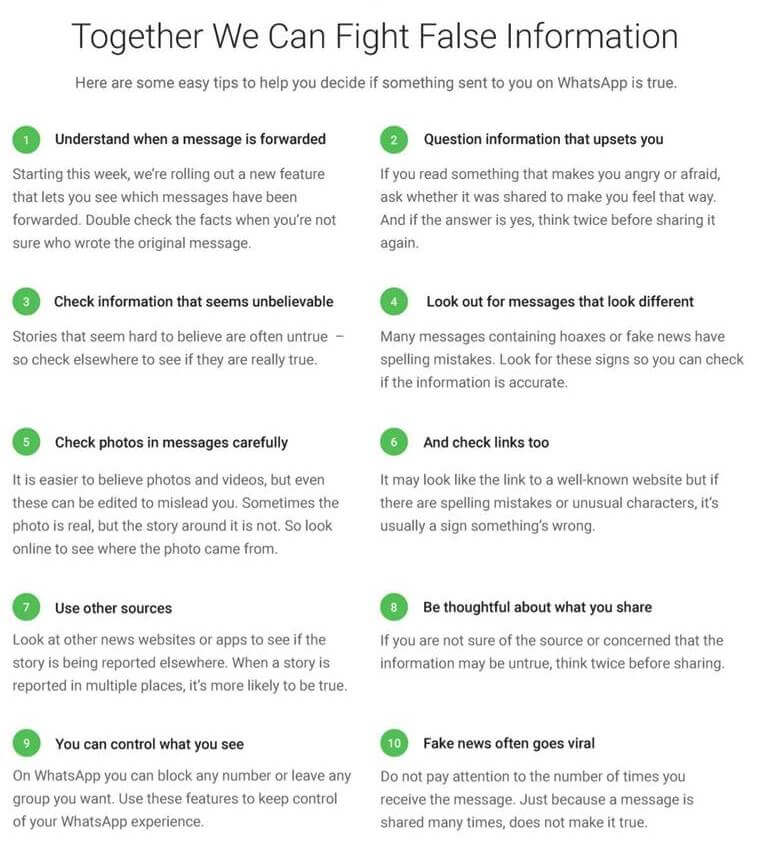
As Facebook-owned Whatsapp comes under the scanner for having become a platform to slew hatred, mobilise mobs and spread false information, the US-based company takes viable action to make more people aware on how to identify fact from hoax.
The move comes as the company has been reprimanded by the government for not having taken adequate action against the spread of rumours, spamming and misinformation that freely circulates on its platform in India. Taking immediate action, Whatsapp posted ads on Indian newspapers on Tuesday, July 10, 2018, with ‘easy tips’ to help users understand if the nature of the message or video content is genuine or suspicious. These tips are available to users in English, Hindi and will soon feature in several other regional languages.

Image Source – Indian Express
The ad attempts to educate users on how they can question what is sent or received by them on WhatsApp. In a section on ‘Question Information that Upsets You’, the ad said, “If you read something that makes you angry or afraid, ask whether it was shared to make you feel that way. And if the answer is yes, think twice before sharing it again.”
The messaging platform with over 200 million users in India now urges them to check out for the messages that look different, because of the spelling mistakes or weird use of characters in otherwise well-known site names.
Whatsapp claims to work with Indian researchers to curb the issue and simultaneously warns users that even the images and videos should be cross-checked for they too could be taken out of context and presented to the user for sensitizing information. In such cases, a little online search on the origin of these photos and videos can help, suggested the company. This might lead to news stories on the same subject if the Whatsapp story is real. Checking the story on other sources online helps to identify its accuracy.
Among these tips is one new feature that the company claimed to roll out this week – to separate a flurry of forwards from other messages. These messages will be distinct in that a new label will be launched to identify a message that has already passed several phone screens. The tip further requests users to double check the information, if they are not sure about the origin of the message.
The ads and the talks related to fake news comes in the wake of mob lynchings that were ignited by rumours of child lifters through incendiary messages across India. While the union IT Minister Ravi Shankar Prasad expressed his “deep disapproval” on the “repeated circulation of such provocative content,” state ministers like PPCC General Secretary, General Captain Sandeep Sandhu put out this message on Twitter:
Use of whatsApp in a responsible manner is the need of the hour and circulation of misleading content damaging the social and political fabric of the country must be stopped. PPCC General Secretary Capt Sandeep Sandhu #iUseWhatsappResponsibly pic.twitter.com/xWn7lmGNp9
— Punjab Congress (@INCPunjab) July 10, 2018
Though Apar Gupta in his article in Hindu iterates that Whatsapp has been wrongly accused of causing the mobbing and lynching in India, the messaging channel believes that “to fight fake news, we all need to work together — technology companies, the government and community groups. If you see something that’s not true, make people aware and help stop the spread.” Fake news can only be eliminated if technology companies, administration and judiciary of the country join hands, with the users as its staunch supporters.

